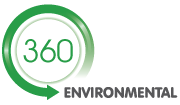Overview
The definition of waste comes from the EU Waste Framework Directive (amended May 2018) with additional Guidance from Defra. However, the point at which an item becomes waste can very in different parts of the UK. Used EEE or textiles that are handled with the intention of further use, for instance can be processed in the UK and sold without ever becoming waste. In Scotland, they have a much stricter view and consider that only if there is certainty of use can they be classed as non-waste. SEPA has recently issued clear guidance on this (Jan 2017). In England, the EA will generally accept a less rigorous check ie that the intent is for reuse and the iotem is in sufficiently good condition to be reused.
This is extremely important as something classed as waste comes under extensive controls that can add huge cost to its movement.
For instance, a waste fridge from a commercial premises must be collected as Hazardous Waste by a registered Waste Carrier with a consignment note whereas a second hand fridge can just be collected in the back of a car.
Controlled wastes are commercial and industrial waste (including construction and demolition waste) and household waste. Agricultural and mining wastes are now classified respectively as commercial and industrial waste and are therefore controlled. Controlled waste is all subject to the Environmental Protection Act 1990 regardless of its end use eg recycling.
The EA list the waste regulations they are responsible for enforcing. However, the old Netregs site which gave all the current and future rgulations has now disappeared with the demise of NetRegs.
In Scotland and Northern Ireland, Netregs is still running.
Whilst the transposition of departmental websites to GOV.UK has made it extremely difficult to find things, there is one page that lists available information on waste. https://www.gov.uk/topic/environmental-management/waste
- Regulators should carry out their activities in a way that supports those they regulate to comply and grow
- Regulators should provide simple and straightforward ways to engage with those they regulate and hear their views
- Regulators should base their regulatory activities on risk
- Regulators should share information about compliance and risk
- Regulators should ensure clear information, guidance and advice is available to help those they regulate meet their responsibilities to comply
- Regulators should ensure that their approach to their regulatory activities is transparent
The rules below apply to England and Wales and generally to Northern Ireland and Scotland although under varying legislation. 360 Environmental has produced a FLOWCHART to help ensure you have considered your legal responsibilities.
- If your premises produces waste, you have a legal responsibility to ensure:
- That the waste is
- Stored safely on site
- Collected by a registered waste carrier
- Disposed of at a licensed facility
- Covered by a valid Waste Transfer Note or Consignment Note
- Correctly described on transfer documentation.
- Disposed of according to the Waste Hierarchy.
- That the Pre-treatment requirements are met by either separating some waste for recycling at your site or ensuring your collector takes it to a sorting facility
- That records of each movement are kept for 2 years for non-hazardous and 3 years for hazardous.
- That the waste is
- If you collect waste or are responsible for the collection of waste as a broker, from 1 January 2015 you have a responsibility to ensure that paper/card, plastic, glass and metals are separately collected from other waste unless you can demonstrate that it is not Technically, Environmentally or Economically Practicable (TEEP) to do so. This applies to hazardous waste as well as non-hazardous.
- In Wales, if your site produces more than 500kgs of hazardous waste a year, you must register as a hazardous waste producer. This requirement was removed for England from 1 April 2016.
- If your waste is classed as Dangerous such as waste that is toxic, Asbestos, Clinical waste, Flammable liquids, Acids, Lead acid or NiCd batteries, the waste must be transported under the Carriage of Dangerous Goods Regulations.
- If you are a
- Shop disposing of raw or lightly cooked meat waste and raw eggs
- Food manufacturer – including sandwich making premises – with raw or cooked meat waste
you must do so under the requirements of the Animal By-products Regulations ie collected separately for incineration, composting or rendering. A derogation is in place that applies a 20kgs/week threshold below which the raw meat can go to landfill.
Restaurants and canteens can dispose of raw and cooked meats with general waste that goes to landfill.
- If you wish to carry out any type of waste treatment at your premises it must have an Environmental Permit although some low risk operations such as composting and storage can be carried out under Exemptions which must be registered.
- If your waste collection is arranged by someone else other than the person collecting or disposing of it, that person or organisation must be a registered Broker.
You can find general guidance on waste management on GOV.UK.
